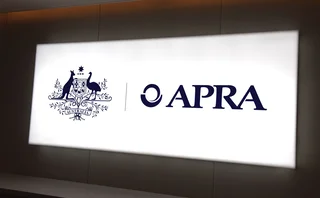
FCStone to post bad debt provision
FCStone Group, an integrated commodity risk management company, has announced it expects to incur a pre-tax bad debt provision of up to $25m due to losses by three domestic accounts, including an energy trading account.
In a conference call on 4 November 2008, Pete Anderson, president and chief executive officer of FCStone, said the company was taking appropriate actions in response to the issue. However, further losses have not yet been ruled out by the company.
It may be possible for the firm to recover some of the loss from the introducing broker under a sharing agreement, but it could not provide details on the amount and timing of recovery.
The company has added to its internal credit risk management staff, in response to the issue, and has undertaken a complete review of its clearing customers’ accounts. It has also employed an external consultant to review risk procedures, processes and systems within the firm.
FCStone has no other accounts with a similar level of exposure or risk to the energy trading account, according to Anderson. He added: “We dropped the ball with this account but the rest of the book of our business is sound and adequately margined.”
FCStone is due to announce its fiscal year end and fourth quarter 2008 results on Thursday 13 November 2008.
Only users who have a paid subscription or are part of a corporate subscription are able to print or copy content.
To access these options, along with all other subscription benefits, please contact info@risk.net or view our subscription options here: http://subscriptions.risk.net/subscribe
You are currently unable to print this content. Please contact info@risk.net to find out more.
You are currently unable to copy this content. Please contact info@risk.net to find out more.
Copyright Infopro Digital Limited. All rights reserved.
As outlined in our terms and conditions, https://www.infopro-digital.com/terms-and-conditions/subscriptions/ (point 2.4), printing is limited to a single copy.
If you would like to purchase additional rights please email info@risk.net
Copyright Infopro Digital Limited. All rights reserved.
You may share this content using our article tools. As outlined in our terms and conditions, https://www.infopro-digital.com/terms-and-conditions/subscriptions/ (clause 2.4), an Authorised User may only make one copy of the materials for their own personal use. You must also comply with the restrictions in clause 2.5.
If you would like to purchase additional rights please email info@risk.net
More on Regulation
Regis-TR and the Emir Refit blame game
Reporting overhaul was marred by problems at repositories, prompting calls to stagger future go-live dates
Iosco pre-hedging review: more RFQs than answers
Latest proposals leave observers weighing new clampdown on pre-hedging
FCMs welcome CFTC margin rule ring-fencing clarification
Final rule on separate accounts replicates no-action relief as Republicans strip out gold plate
Stuck in the middle with EU: dealers clash over FRTB timing
Largest banks want Commission to delay implementation, but it’s not the legislator’s only option
Treasury clearing timeline ‘too aggressive’ says BofA rates head
Sifma gears up for extension talks with incoming SEC and Treasury officials
Rostin Behnam’s unfinished business
Next CFTC chair must finish the work Behnam started on crypto regulation and conflicts of interest
European Commission in ‘listening mode’ on potential FRTB changes
Delay or relief measures on the table after UK postpones start of Basel III to 2027
Australian FRTB projects slow down amid scheduling uncertainty
Market risk experts think Apra might soften NMRF regime to spur internal model adoption







